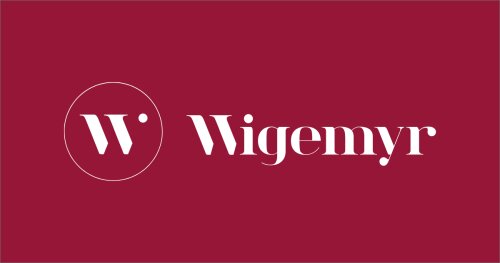Best Bankruptcy Lawyers in Kristiansand
Share your needs with us, get contacted by law firms.
Free. Takes 2 min.
List of the best lawyers in Kristiansand, Norway
About Bankruptcy Law in Kristiansand, Norway
Bankruptcy is a legal process that applies when an individual or a company is unable to pay their debts as they fall due. In Kristiansand, as throughout Norway, bankruptcy is governed by national legislation which aims to ensure fair treatment for both debtors and creditors. The process typically involves the judicial winding up of assets and distribution of proceeds to creditors. The main goal is to provide a solution when there are insufficient assets to cover all debts, protecting both the interests of the indebted party and the creditors involved.
Why You May Need a Lawyer
There are several common situations where legal help regarding bankruptcy becomes necessary in Kristiansand. These include:
- If you are struggling with overwhelming debt and unable to negotiate payment plans or settlements with creditors
- When creditors are taking legal action against you, such as wage garnishment or asset seizure
- If your business is facing insolvency and needs to understand restructuring or liquidation options
- When you need clarification about your legal rights and obligations in bankruptcy cases
- If you suspect a creditor or debtor of acting unlawfully
- If you want to challenge a bankruptcy decision or protect specific assets
A lawyer can explain the complex process, ensure your rights are protected, and help you make informed decisions throughout the bankruptcy proceedings.
Local Laws Overview
Bankruptcy proceedings in Kristiansand are regulated by Norwegian law, mainly the Bankruptcy Act (Konkursloven) and the Creditors Recovery Act (Dekningsloven). Key aspects include:
- Filing for bankruptcy: Individuals and businesses can file for bankruptcy through the local district court in Kristiansand if they are insolvent.
- Insolvency test: The court will determine insolvency by evaluating whether you cannot meet your financial obligations as they fall due and whether your assets are insufficient to cover your debts.
- Bankruptcy estate: Once bankruptcy is declared, all assets are collected to form the “estate,” managed by a court-appointed trustee who sells assets and pays creditors according to a legally prescribed order.
- Creditor meeting: The process includes formal meetings where creditors can present claims and discuss the estate’s administration.
- Debt relief: For qualifying individuals, debt negotiation or “gjeldsordning” is a separate process for reorganizing debt but is not the same as bankruptcy.
- Discharge of debt: Unlike some legal systems, Norwegian bankruptcy does not guarantee full discharge of debt unless through a debt settlement proceeding.
- Criminal implications: Fraudulent behavior, such as hidden assets, may lead to criminal charges and civil consequences.
It is important to note that all proceedings are overseen by the Kristiansand District Court and are conducted according to Norwegian law and procedures.
Frequently Asked Questions
What is bankruptcy?
Bankruptcy is a legal process where an individual or business unable to pay their debts has their assets seized and sold by a court-appointed trustee, with proceeds distributed to creditors.
Who can declare bankruptcy in Kristiansand?
Both individuals and companies based in Kristiansand can file for bankruptcy if they are insolvent, meaning they cannot meet their financial obligations as they become due.
How do I file for bankruptcy?
Filing for bankruptcy involves submitting an application to Kristiansand's District Court, proving insolvency. The court assesses the case before formally declaring bankruptcy.
What happens to my assets during bankruptcy?
Once bankruptcy is declared, your assets become part of the bankruptcy estate, managed by a trustee, who liquidates them to pay creditors according to legal priorities.
Can I keep any assets?
You might be allowed to keep essential items necessary for living or working, but most assets will be included in the bankruptcy estate, subject to strict regulations.
Will bankruptcy eliminate all my debts?
Bankruptcy does not automatically discharge all debts in Norway. Certain types of debts, like child support or criminal fines, cannot be discharged, and remaining debts may persist unless addressed through a debt settlement process.
What is the difference between bankruptcy and debt settlement (gjeldsordning)?
Bankruptcy involves liquidation of assets and distribution to creditors, while debt settlement is a negotiation aiming for partial repayment and eventual discharge of the remaining debt. Debt settlement is available only to private individuals under certain conditions.
Do I need a lawyer for bankruptcy proceedings?
While not legally required, having a lawyer can help you navigate complex legal requirements, protect your interests, and ensure you are fully aware of your rights and obligations.
What are the consequences of bankruptcy?
Consequences include loss of control over your assets, potential restrictions on starting a new business, impacts on your credit rating, and in some cases, personal financial scrutiny or legal consequences if there are signs of misconduct.
How long does the bankruptcy process take?
The length of bankruptcy proceedings depends on the complexity of the case, the number of assets and creditors, and any legal challenges. Simple cases may conclude within a few months, while more complex cases can take a year or longer.
Additional Resources
If you need more information about bankruptcy in Kristiansand, the following resources may be helpful:
- The Kristiansand District Court (Kristiansand tingrett): For filing and procedural information
- Norwegian National Enforcement Authority (Namsfogden): For debt enforcement and collection matters
- Brønnøysund Register Centre (Brønnøysundregistrene): For business bankruptcy notifications and public records
- Legal Aid Services (Advokatvakten or free legal advice clinics): For basic assistance and referrals
- Norwegian Consumer Council (Forbrukerrådet): For guidance on managing debt and consumer rights
These organizations can provide useful guidance or direct you to appropriate professional advisors.
Next Steps
If you are considering bankruptcy or dealing with debt issues in Kristiansand, it is important to act promptly in order to protect your financial interests. Here are some recommended steps:
- Gather relevant documents, such as debt statements, asset inventories, income details, and communications from creditors
- Contact a qualified lawyer with experience in bankruptcy law to discuss your situation and outline your options
- If you are considering filing, consult the Kristiansand District Court or local authorities about the process and required documentation
- Consider speaking with free legal aid services if you have limited resources
- Be open and honest throughout the process to ensure a fair and legal resolution
Taking early action and seeking proper legal guidance will increase your chances of a successful outcome and help you regain control over your financial situation.
Lawzana helps you find the best lawyers and law firms in Kristiansand through a curated and pre-screened list of qualified legal professionals. Our platform offers rankings and detailed profiles of attorneys and law firms, allowing you to compare based on practice areas, including Bankruptcy, experience, and client feedback.
Each profile includes a description of the firm's areas of practice, client reviews, team members and partners, year of establishment, spoken languages, office locations, contact information, social media presence, and any published articles or resources. Most firms on our platform speak English and are experienced in both local and international legal matters.
Get a quote from top-rated law firms in Kristiansand, Norway — quickly, securely, and without unnecessary hassle.
Disclaimer:
The information provided on this page is for general informational purposes only and does not constitute legal advice. While we strive to ensure the accuracy and relevance of the content, legal information may change over time, and interpretations of the law can vary. You should always consult with a qualified legal professional for advice specific to your situation.
We disclaim all liability for actions taken or not taken based on the content of this page. If you believe any information is incorrect or outdated, please contact us, and we will review and update it where appropriate.









